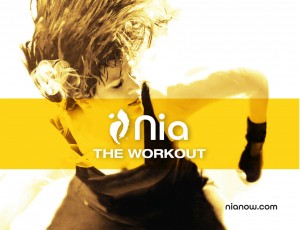What is the Nia Technique, or Nia?
The Nia Technique is based on dance, martial arts and body awareness. It is also a synergy between jazz and modern dance, Duncan Dance, Tai chi, TaeKwanDo, Aikido, the Alexander Technique, the Feldenkrais Method® and Yoga. Nia gracefully joins Western and Eastern wisdom. Nia is for the body and the mind. Movements are innovative, they allow great space for freedom and personal expression. Choreographies are performed to music which is both challenging and enjoyable. Nia dance is done barefoot ; it is considered non-impact and consequently harmless for leg joints.
It is invigorating, playful and provides a relaxing effect!
Nia originated in the US in the 80’s, thanks to Debbie and Carlos Rosas who created the technique and who have ensured its development and evolution until now. Their goal was to conceptualize a method to get to know oneself better through body awareness and movement. Nia allows one to release physical tension and stress ; it also enables one to regain and strenghten self-confidence, self-esteem and happiness.
Nia is accessible to everyone
This characteristic is fundamental and essential to the Nia Technique. Nia is unique as it aims at tuning-in to one’s body. Nia is adaptable as it offers three levels of intensity for each movement, as well as endless choices of expressive gestures. During class, one is free to increase or decrease the rythm, intensity or the range of movements, without judgment, comparison or competition. One is free to simply follow one’s intuition and inspiration according to one’s ability and needs, in-tune with one’s body. The practice of Nia enables harmony of the body, mind and spirit.
Nia’s 9 main sources of inspirations are :
Martial arts
Tai Chi Chuan,TaeKwanDo, Aikido
Dancing arts
* Jazz Dance
* Modern Dance
* Isadora Duncan Dance
Healing Arts
The Teachings of Moshe Feldenkrais®
The Alexander Technique
Yoga
#colophon
Traduction Arlette Sauvé / 5 janvier 2016
Tae kwan do
Aikido
Dancing arts
Jazz dance
Modern dance
Isadora Duncan dance
Healing Arts
The teachings of Moshe Feldenkrais
The Alexander Technique
Yoga

